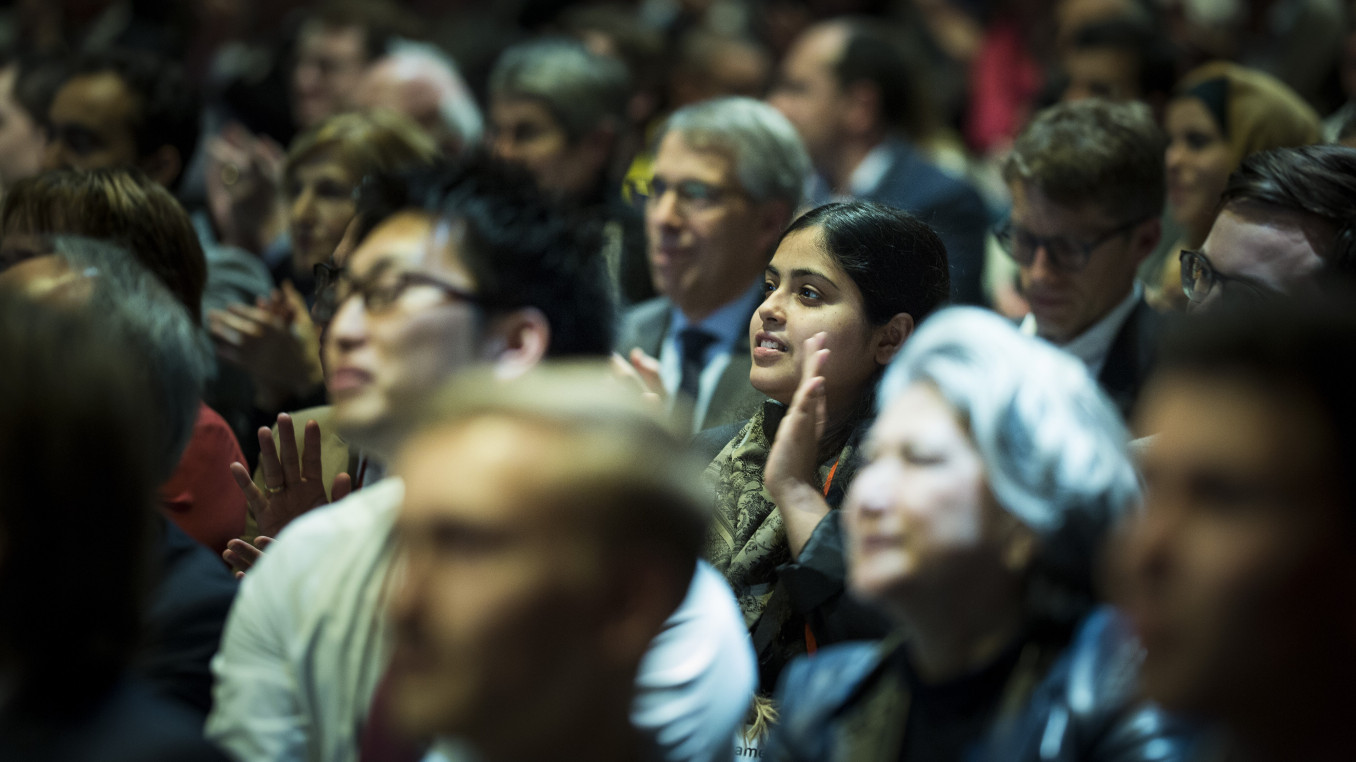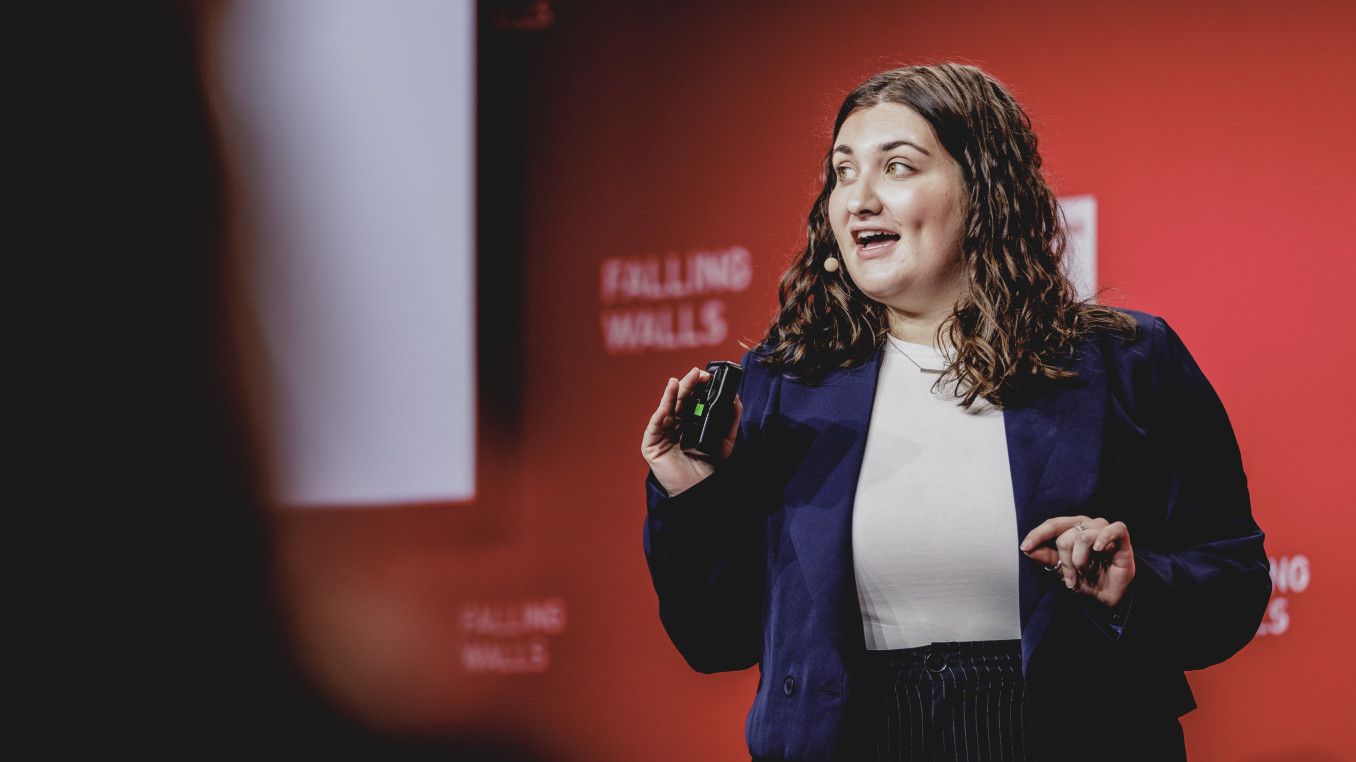Breaking the Wall of Media and Communication Ethics
Breaking the Wall of Media and Communication Ethics
Global Call 2025 Finalist Interview: Social Sciences and Humanities
Lilie Chouliaraki is a Professor at LSE and a leading expert on humanitarian communication, witnessing and victimhood. Her book Wronged. The Weaponization of Victimhood (2024) won the 2025 ICA Outstanding Book Award and the ICA Philosophy, Theory and Critique Division Best Book Award. Other works include The Spectatorship of Suffering (2006), The Ironic Spectator (2013, ICA Book Award 2015), and The Digital Border (co-authored, 2022).
Which wall does your research or project break?
Communication ethics.
What is the main goal of your research or project?
My work sits at the intersection of media, representation and vulnerability, and it develops a distinctive approach to communication ethics. I look at how media narratives portray human suffering and pain and, in doing so, how they shape ethical, political and cultural relationships within and between communities. At the heart of my work is a concern with how communication either enables or forecloses the recognition of others as morally significant, especially in contexts of war, disaster, displacement and inequality.
In my earlier work, I focused on how suffering in the global South was mediated. More recently, however, I’ve turned to the global North and the ways it narrates its own suffering. Here, I’ve been interested in how Western political and cultural actors—especially on the far right—present themselves as vulnerable or aggrieved, reframing victimhood as a basis for moral entitlement and political domination. My book Wronged: The Weaponization of Victimhood (2024), which was fortunate to receive major recognition, explores this shift as a crisis of communication ethics, where narratives of injury are no longer the preserve of those who need them most but are redeployed as tools of authority and exclusion for the already powerful.
Through this lens, Wronged shows how the vocabulary of pain is increasingly being used to redraw the moral boundaries of public discourse. Instead of fostering solidarity or amplifying silenced voices, today’s moral economy of victimhood privileges the grievances of the powerful and constrains the space for justice. In my work, I argue that communication ethics should be more than an analytical framework—it should also be a critical intervention in democratic life.
This is why I emphasise the need for media practices that uphold pluralism, accountability and genuine recognition in the face of rising political and cultural antagonisms between democratic and illiberal forces. By tracing how political speech and media storytelling turn victimhood into entitlement, I want us to rethink not only how we communicate pain but also whose suffering ultimately counts, and to what ends.
In doing so, I aim to redefine communication ethics as a critical project that speaks directly to the shifting politics of recognition in an age of polarisation, moral contestation and growing far-right dominance.
What advice would you give to young scientists or students interested in pursuing a career in research, or to your younger self starting in science?
- Ask the “so what” question: The most meaningful research often comes from asking not only “what is true or what does this mean?” but also “why does this matter and to whom?” This is especially important in the social sciences and humanities, where the value of research is increasingly questioned, politicised and defunded. In such a climate, our responsibility as scholars is to defend forms of inquiry that don’t promise immediate impact or market utility but are essential for understanding the deeper structures and dynamics of power in social life. This focus on understanding and critical interpretation, which asks what is at stake in the knowledge we produce, is fundamental to any democratic and just society.
- Be engaged: Remember that research is not separate from the world. The ethical, social, and political implications of what we study and how we study it are a big part of our responsibility as scholars. This is particularly true in critical humanities and social science research where the questions we ask often unsettle consensus or speak to uncomfortable truths. Our value as scholars comes precisely from opening up new ways of seeing.
- Be strategic: Don’t be afraid to challenge dominant narratives or assumptions in your field but do so with a clear sense of purpose and find your community along the way. Research can feel individualistic and competitive, but it is always also about the social connections and collective conversations that inspire and support us. Surround yourself with senior mentors and peers who encourage your growth as a scholar, guide you with wisdom and care and are invested not just in your “outputs” but in your intellectual questions. At the same time, protect time for deep thinking and writing. It’s easy to get swept up in productivity metrics, grant cycles and performance benchmarks, but the work that endures, both conceptually and politically, often emerges from sustained reflection and the slow synthesis of new ideas.
What inspired you to be in the profession you are today?
I was drawn to my field by a need to understand how media shape our engagement with human vulnerability: whose lives are made visible, whose pain is dismissed and why. I began in linguistics, but it was the ethical and political stakes of public communication that led me to media and communications. And it was the inspiring energy of teaching that has kept me inspired. Specifically, through the lens of communication ethics, my work explores how narratives of victimhood are mobilised to claim power, create political community and contest what justice and solidarity mean today.
What impact does your research or project have on society?
It established mediated suffering as a key field within media and communication studies and offered new ways of understanding how vulnerability is communicated, consumed and acted upon. In addition, through concepts like post-humanitarianism and victimhood as a language of pain and power, this project developed critical diagnoses of our political moment that have reshaped how we think about recognition and responsibility in public life—not only in academia, but also in journalism, humanitarianism and public debate, where this work has been heavily cited and used.
What is one surprising fact about your research or project that people might not know?
Well, a surprising fact that is perhaps not surprising but certainly unusual is that I wrote this project while battling a difficult diagnosis and going through treatment in the middle of the pandemic - I talk about it in the introduction to the project.
What’s the most exciting moment you've experienced over the course of your research or project?
After working alone throughout the pandemic, the most exciting moment arose the first time I had the opportunity to share the central argument of the project with my students and seeing their enthusiastic engagement and support. They were the first to appreciate its value and relevance to our political moment and I was excited for it!

